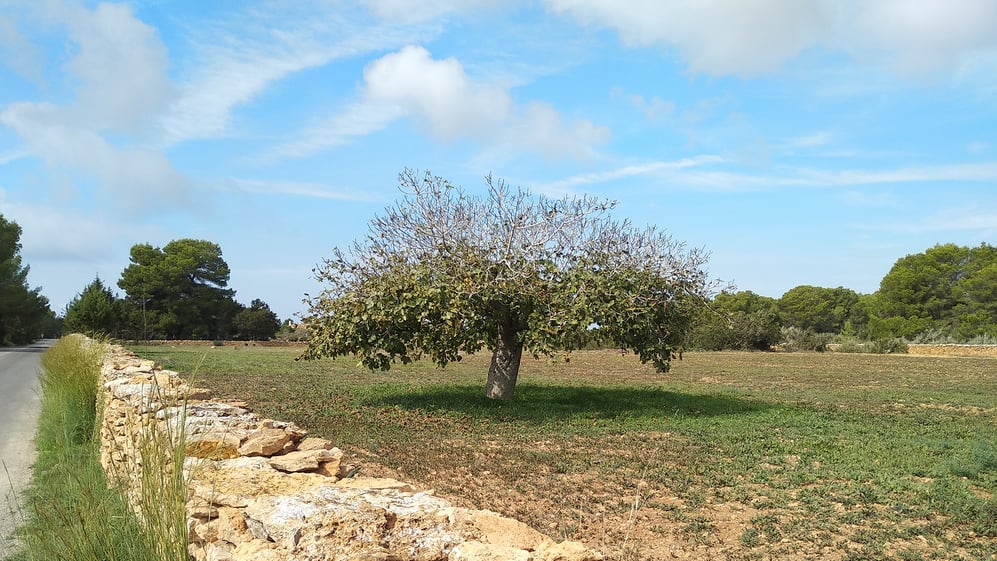Continuing our yearlong journey through Jesus’ parables, let’s consider the barren fig tree as a lesson topic. I’ll examine the content and major themes of this parable from a Law and Gospel perspective, present a few teaching ideas, and suggest a couple of songs that complement the lesson.
The Parable of the Barren Fig Tree (Luke 13:6–9)
6And He told this parable: “A man had a fig tree planted in his vineyard, and he came seeking fruit on it and found none. 7And he said to the vinedresser, ‘Look, for three years now I have come seeking fruit on this fig tree, and I find none. Cut it down. Why should it use up the ground?’ 8And he answered him, ‘Sir, let it alone this year also, until I dig around it and put on manure. 9Then if it should bear fruit next year, well and good; but if not, you can cut it down.’ ”
Law
Immediately before this parable, Jesus addresses the crowd regarding those whom Pontius Pilate murdered and those who were crushed under the Tower of Siloam. Jesus’ hearers are naturally curious regarding how the behavior of the victims may have contributed to the victims’ demise. In other words, did a wrathful God smite them for their sins? Our Lord doesn’t address any particular behavior, but instead calls for repentance. This helps our understanding of the barren fig tree.
Without doubt, Jesus is pointing to the need for Christians to “produce fruit,” that is, to turn away from sin and instead embrace the love of Jesus Christ for Him and our fellow man. As God’s children, we need regular encouragement to live according to God’s Word.
There is something more. Notice what changes in order that the tree might produce fruit. It does nothing for itself; rather, another party digs around it and applies manure. The tree cannot hope to produce fruit on its own until an external change is made. As Lutherans, we understand that even with the best intentions and more beneficial actions, we cannot produce what God calls “fruit” until He has made us His children in Jesus Christ through the work of the Holy Spirit in the Gospel. In other words, our efforts are not good fruit until God has come, dug around us, and applied manure. So the kindest, most generous atheist in the world may move mountains to help his fellow man, yet not one effort is good fruit in God’s eyes, because this man is outside of Christ, as are his efforts.
In teaching this parable, it’s important to avoid merely pounding home the need to do good things for the Lord. The encouragement is helpful, but only as it leads into the Gospel.
Gospel
God at once demands that we produce good fruit, and He enables us to do so. Christians, including the little ones, need to grow accustomed to this aspect of the Gospel. Our nature as prideful sinners is to understand our goal as reaching God’s righteousness as a result of producing good fruit. The exact opposite is true. The tree will produce good fruit once the gardener has dug around it and applied manure. Sinners produce good fruit once God has re-created them in Christ.
There is sweet Gospel in this parable. First, take note of the patient vinedresser. He asks to delay final destruction of the tree, beseeching the man instead for ministry to the unproductive tree. Christians often wonder why God delays His return in Christ. Here is the answer. Like the vinedresser, God seeks restoration and re-creation, not destruction. God is patiently waiting, reaching out with the Gospel of His Son, that many would come to salvation.
How, then, does God dig around us and apply manure? He does so through Word and Sacrament. God comes alongside the dead tree that produces no fruit. This is the unbeliever. As the unbeliever is unable to help himself or herself, God takes care of everything. In Baptism, He washes away sin, creates faith, brings the Holy Spirit, and places His everlasting mark of ownership. Once He has made this person His child, God then nourishes and strengthens the person’s faith in Jesus through regular reception of His true body and blood in Holy Communion. Throughout the process, God’s Holy Spirit bathes the person in His Word, Holy Scripture, which strengthens faith and draws the new creation into an ever deepening and vibrant relationship with the heavenly Father in Jesus Christ. All these things enable and encourage the new tree to produce the fruit God demands. God expects but also makes possible the production of fruit.
Teaching Ideas
Before the lesson, collect the following items:
- A Bible
- Communion hosts
- Communion chalice and individual cups for wine
- A bowl of water or similar items to represent Baptism
- A plant
- Fertilizer or plant food
- Apples or other fruit
Present the above items to the class to amplify the parable. Explain that we are like plants that produce no fruit until God comes along to change us. Present fertilizer or plant food along with the Bible and sacramental items, making the connection between spiritual growth and the work of the Holy Spirit. In the same way the vinedresser makes the tree produce fruit with digging and with adding manure, so also God makes the sinner produce fruit by re-creating the person as a Christian through Word-and-Sacrament ministry. Stress that many of the students in class have been baptized already. Emphasize that God’s nurturing is one of the reasons we are encouraged to attend worship regularly.
Song Suggestions
- “Give Me Oil in My Lamp”
- “This Little Gospel Light of Mine”
- “Thy Strong Word”
- “I’ve Got Peace Like a River”












